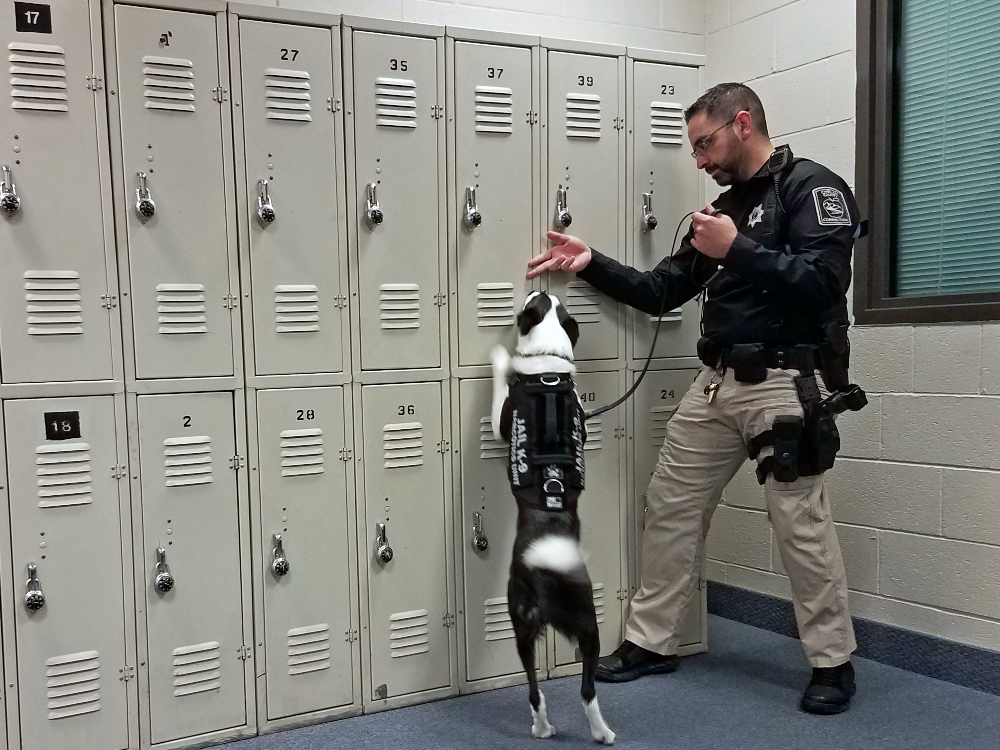Deputy Lewis and K-9 Kait will work with Chelan and Manson School Districts
information released, photo above: Corrections Deputy Jacob Lewis trains with K-9 Kait, a narcotics-detecting dog, at the Chelan County Regional Justice Center.
Chelan County has signed agreements with six area school districts that will allow school resource officers to partner with the county jail’s narcotics-detecting dog and her handler. The interagency agreements allow for school resource officers, who are local law enforcement officers working in the schools, to call the Chelan County Regional Justice Center and request that the dog and her handler come to a school if the officer has reasonable suspicion that a student has brought narcotics onto campus.
The dog, known as K-9 Kait, could be used to walk around lockers, cars, backpacks or school perimeters. If she alerts on a trained odor, the school resource officer and school district will review any finds from the search and handle next steps.
The agreements were signed last month between the Board of County Commissioners and the Waterville, Eastmont, Bridgeport, Chelan, Entiat and Manson school districts.
“We are very excited for this new partnership,” said Chris Sharp, director of the Chelan County Regional Justice Center, one of two municipal jails in the state that utilizes a narcotics-detecting dog. “For us, this is an opportunity to not only make a difference in our community but to also show young people that a career in corrections can be more than four walls and cells.”
More than two years ago, the Regional Justice Center invested in a detection dog and sent Corrections Deputy Jacob Lewis to training to learn how to be a handler. The pair have quickly become a key component to the jail’s narcotics detection program, which aims to stop drugs from getting into the county jail.
K-9 Kait is trained to detect six odors, including marijuana. Mostly recently, she was trained to detect fentanyl.
“Law enforcement agencies in Washington state no longer train their narcotics-detecting dogs on marijuana,” Sharp said. “However, you still can’t have it in the schools. This is one area where Kait and Deputy Lewis may be able to help the school districts because she is trained to detect marijuana.”
In addition, the schools have agreed to allow Lewis to do training sessions in the schools with the dog. Deputy Lewis and Kait are familiar faces at several local schools because they have been doing presentations to school children for a couple of years.
“Much like what we’ve seen at the jail, just knowing Kait is available and around is a deterrent for people trying to bring drugs into a facility,” Sharp said. “I suspect we will see the same results with our partner school districts.”








